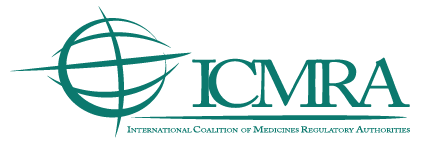ICMRA Statement on Pre-Requisites for Regulatory Flexibility in Pharmaceutical Manufacturing Change Management
Since early 2020, medicines regulators and the pharmaceutical industry have worked together as part of ICMRA to advance innovation in development of new therapeutics and vaccines to address urgent unprecedented global needs caused by the COVID-19 pandemic. The scientific achievements of the past year have been remarkable, and effective vaccines and therapeutics have been authorised in many parts of the world. All efforts are now focusing on ensuring that these medicines are produced and made available on an unprecedented global scale. Therefore, it is important for ICMRA and industry stakeholders to interact with each other to further understand and exchange lessons learned from both sides and continue ensuring uninterrupted supply of medicines to patients.
On 7-8 July 2021, ICMRA and Industry stakeholders conducted a joint workshop* with a focus on quality, as part of a joint international effort to accelerate the availability of the life-saving therapeutics and vaccines. The goal was to enhance regulators’ understanding of specific challenges faced by manufacturers who are seeking to increase manufacturing capacity for COVID-19 therapeutics and vaccines. Another aim was to improve industry’s awareness of current regulatory approaches that have been used to enable the rapid increase of manufacturing capacity for production of COVID-19 therapeutics and vaccines in different regions.
The experience shared in the workshop highlighted the most important enablers for industry to maximise the use of regulatory flexibilities introduced in response to the COVID-19 pandemic for supporting manufacturing and post-approval changes. Key enablers that facilitated the use of extraordinary regulatory flexibilities introduced by regulators included open and continuous communication with the regulator on submissions and supply chain capacity and needs, demonstration of product and process knowledge, relevant manufacturing experience, GMP compliance at the proposed manufacturing site, and establishment of an effective pharmaceutical quality system (PQS) at facilities. An effective PQS is one that proactively focuses on performance, especially outcomes that affect the patients, including managing changes and continuous improvements, reducing quality issues that lead to complaints, shortages, and quality-related adverse events. In an effective PQS, with a mature quality culture, manufacturers take ownership to set organizational objectives to drive quality, focus on innovation and continual improvement, and apply risk management to ensure reliable medicine supply.
The combination of product and process understanding with an effective PQS, combined with open, and continuous communication between stakeholders, allows regulators to utilise greater regulatory flexibility when approving manufacturing changes. It is also key to the development of post-approval change management protocols (PACMPs).** PACMPs allow manufacturers and regulators to agree upfront on the data required to support a future change, allowing manufacturers to move quickly to implement changes, which can be facilitated by lower reporting categories. Furthermore, other regulatory flexibilities, including the amount and timing of submission of additional information needed to support post-approval changes, combined with alternative approaches to the inspection of manufacturing facilities, become viable.
As regulatory authorities work to extend regulatory reliance and collaborative assessment and refine their tools and approaches to expedite availability of safe and effective medicines and vaccines worldwide, ICMRA calls on pharmaceutical companies and manufacturers to continually demonstrate their commitment to quality, including striving for better product and process knowledge, ensuring GMP compliance, and implementing an effective PQS. These collectively enable regulatory authorities to grant suitable flexibilities that can facilitate post-approval change management, enabling industry to expand their manufacturing capacities of essential vaccines and therapeutics to meet critical and global needs created by pandemics like COVID-19.

